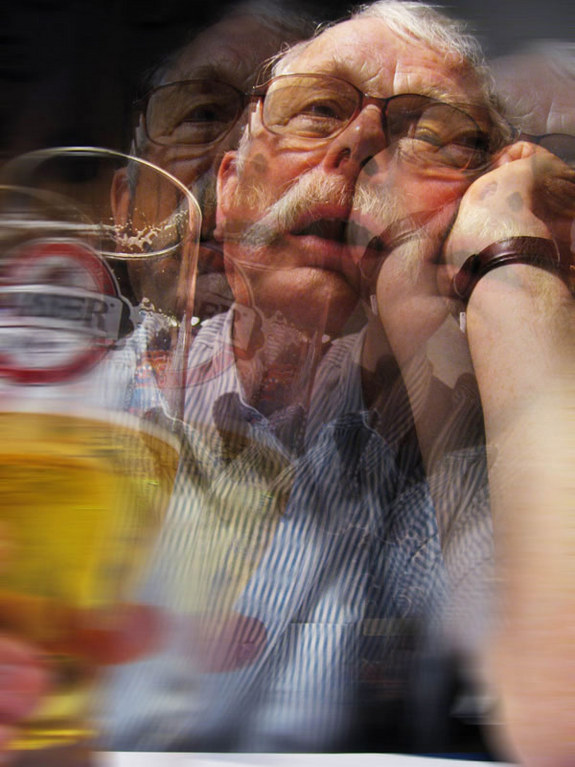Scientists Stop Stumbling and Find Source of Sloppy Drunkenness

Next time you wake up with a bruise from a drunken fall, don't blame your brain. New research is indicating the behavioral effects of alcohol come from your immune system instead.
"It's amazing to think that despite 10,000 years of using alcohol, and several decades of investigation into the way that alcohol affects the nerve cells in our brain, we are still trying to figure out exactly how it works," study researcher Mark Hutchinson of the University of Adelaide in Australia said in a statement.
Sedation and reduced muscle coordination are known to be among the behavioral effects of alcohol, and are the ones that lead to traffic accidents and morning-after bumps and bruises. However, it turns out researchers may have been looking in the wrong cells of the body for the cause of these behaviors. [10 Easy Paths to Self Destruction]
Dialing down drunken behaviors
The researchers genetically engineered mice to be able to "hold their liquor," in a sense. The scientists focused on deactivating TLR4 — the "Toll-like receptor 4," a switch of sorts that activates the body's innate immune system. This is the system that automatically provides responses, including fever and inflammation, to an infection.
When TLR4 is activated, immune cells in the brain called glia send out an inflammation signal, which may be a key way alcohol causes behavioral changes (like stumbles and slurs) and long-term brain damage. (Glia cells work in the brain the way immune cells do in the body, to keep our gray matter happy, healthy and free from infection.)
Genetically engineered mice with inactive TLR4 proved resistant to the behavioral effects of alcohol while they were drunk. They were able to stay perched on a rotating rod longer and were sedated for a much shorter time than normal drunk mice were.
Get the world’s most fascinating discoveries delivered straight to your inbox.
Treatment for sloppy drunk?
These behavioral effects of alcohol were also reversed in normal mice that had been treated with a compound that blocks the activation of TLR4. (The TLR4 blocker didn't have any effect on the genetically engineered mice without working TLR4.)
Compounds that block these TLR4 effects could be used to treat chronic alcohol dependence and even short-term alcohol effects, including overdoses, the scientists said. Identifying individual differences in these pathways also could help detect the people at greater risk to develop brain damage from drinking.
While the research was carried out on mice, Hutchinson's team believes similar pathways could be at work in humans, therefore similar treatments should work.
The study was published today (Sept. 28) in the British Journal of Pharmacology.
You can follow LiveScience staff writer Jennifer Welsh on Twitter @microbelover. Follow LiveScience for the latest in science news and discoveries on Twitter @livescience and on Facebook.
Jennifer Welsh is a Connecticut-based science writer and editor and a regular contributor to Live Science. She also has several years of bench work in cancer research and anti-viral drug discovery under her belt. She has previously written for Science News, VerywellHealth, The Scientist, Discover Magazine, WIRED Science, and Business Insider.



